
Medically integrated dispensing (MID) improves monitoring and supports value-based care, but startup costs and payer barriers remain, notes Katherine Tobon, PharmD, BCOP.

Medically integrated dispensing (MID) improves monitoring and supports value-based care, but startup costs and payer barriers remain, notes Katherine Tobon, PharmD, BCOP.

Susan Vadaparampil, PhD, MPH, highlights disparities in cancer outcomes and trial enrollment but underscores that linking community screening programs with cancer centers may help.

Explore the complexities of modern oncology, including precision medicine, CAR T-cell therapies, and challenges in breast cancer care and payer friction.

Zanubrutinib shows superior progression-free and overall survival in relapsed mantle cell lymphoma compared with acalabrutinib, according to a new analysis.

Rusfertide has received orphan drug, fast track, and breakthrough therapy designations from the FDA, and in this interview, Andrew Kuykendall, MD, Moffitt Cancer Center, emphasizes the critical need for therapies that offer a sense of normalcy to individuals with polycythemia vera.

Noting the profound impact of living with a chronic condition that constantly reminds patients of their "patient" status, Andrew Kuykendall, MD, Moffitt Cancer Center, emphasizes the importance of therapies that can offer a sense of normalcy.

Andrew Kuykendall, MD, Moffitt Cancer Center, explains the goals of the VERIFY trial and why its data on rusfertide could have paradigm-changing implications for patients with polycythemia vera (PV) who currently rely on frequent phlebotomies for relief.
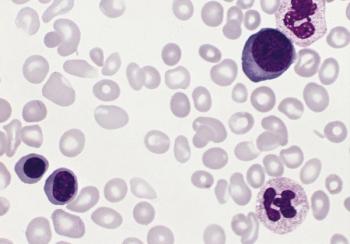
Adding rusfertide to standard of care more than doubled the share of patients with polycythemia vera (PV) who did not meet criteria for a phlebotomy, according to data from the VERIFY trial.

The ALPHA3 trial is exploring cemacabtagene ansegedleucel's (cema-cel) potential to enhance outcomes in patients who have relapsed/refractory large B-cell lymphoma, particularly those positive for minimal residual disease.

Andrew Kuykendall, MD, is an investigator on the phase 3 VERIFY trial (NCT05210790), findings from which demonstrate the safety, reliability, and effectiveness of rusfertide to treat polycythemia vera.

In part 4 of an interview with The American Journal of Managed Care®, Frederick L. Locke, MD, provides insight on the design of the ALPHA and ALPHA2 trials, which are investigating the chimeric antigen receptor T-cell therapy (CAR T) cemacabtagene ansegedleucel (cema-cel) in relapsed/refractory large B-cell lymphoma.

In this fourth part of a discussion with The American Journal of Managed Care®, Andrew Kuykendall, MD, clinical researcher at Moffitt Cancer Center and VERIFY investigator, speaks to the impressive patient-reported outcomes seen thus far.

In part 3 of a discussion with Andrew Kuykendall, MD, Moffitt Cancer Center, he talks of rusfertide’s ability to enable patients to live a more viable life and free them from being tethered to the need for regular phlebotomies.

The rate of cGVHD-free survival was 78% at 1 year in patients who received Orca-T compared with 38% among patients who received standard allogeneic stem cell transplant for hematologic malignancies.

Treatment guidelines in polycythemia vera currently recommend maintaining hematocrit below 45%, with a higher threshold for men vs women.

Cemacabtagene ansegedleucel, an allogeneic chimeric antigen receptor (CAR) T-cell therapy, is being investigated in relapsed/refractory large B-cell lymphoma.

Fred Locke, MD, Moffitt Cancer Center, explains why this hematologic cancer is such an attractive target for chimeric antigen receptor (CAR) T-cell therapy, specifically allogeneic, which uses healthy donor cells.

Polycythemia vera is a classic myeloproliferative neoplasm and a chronic type of leukemia, which often leads to overproduction of various blood cells.

On February 13, Allogene Therapeutics published new long-term follow-up data on cemacabtagene ansegedleucel, showing the investigative allogeneic chimeric antigen receptor (CAR) T-cell therapy produced durable responses in relapsed/refractory large B-cell lymphoma.

Besides Kent Hospital, the Association of Cancer Care Centers worked with Perlmutter Cancer Center at NYU Langone Hospital and Charleston Area Medical Center Vandalia Health in Charleston, West Virginia.
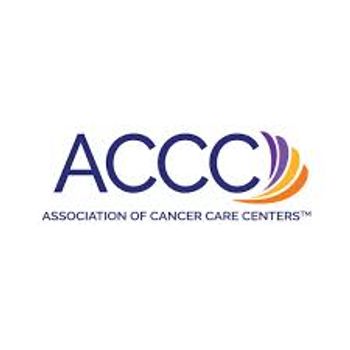
Perlmutter Cancer Center at NYU Langone was 1 of 3 sites to take part in the Association of Cancer Care Centers quality improvement initiative in myeloproliferative neoplasms (MPNs).
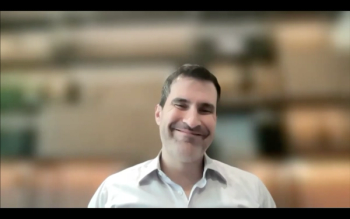
Tiago Biachi, MD, PhD, highlighted the transformative role of personalized medicine in gastrointestinal (GI) cancer treatment through advances in next-generation sequencing and circulating tumor DNA, while emphasizing the importance of lifestyle factors in prevention and recurrence.

Tiago Biachi, MD, PhD, discusses the challenges of treating gastrointestinal (GI) cancers, particularly the limited effectiveness of immunotherapy for "cold tumors" and the need to make them more responsive to immune treatments.

"Off the shelf" CAR T-cell therapies could offer a solution in chronic lymphocytic leukemia, where T-cell exhaustion creates treatment challenges.

The authors say a standard method of assessing metabolic tumor volume would be needed for its use to become widespread.
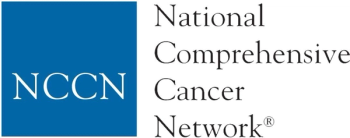
The National Comprehensive Cancer Network (NCCN) recommends ropeginterferon alfa-2b as first-line cytoreductive therapy for polycythemia vera.
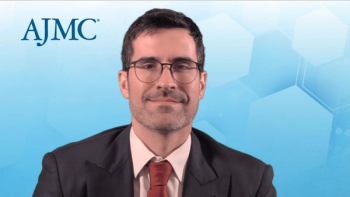
Tiago Biachi de Castria, MD, PhD, associate member in the Department of Gastrointestinal Oncology at Moffitt Cancer Center, discusses how precision medicine tools have aided oncologists in treating patients with solid tumors, while reducing overall toxicity.
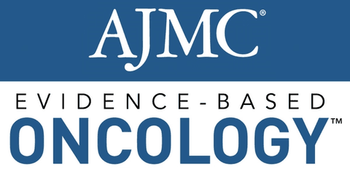


Results from a phase 2 study suggests that the oncolytic virus talimogene laherparepvec has potential to improve therapy responses for patients undergoing neoadjuvant chemotherapy for triple-negative breast cancer (TNBC).

259 Prospect Plains Rd, Bldg H
Cranbury, NJ 08512
© 2025 MJH Life Sciences®
All rights reserved.
